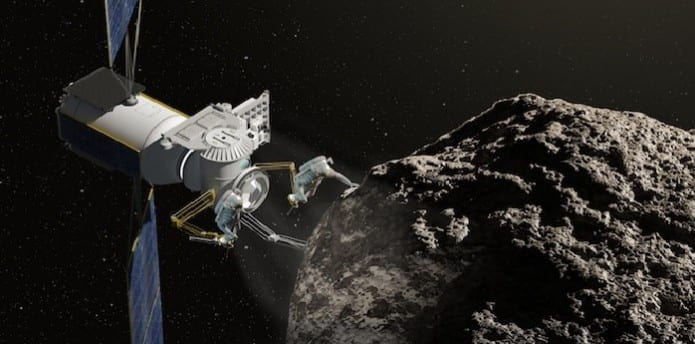U.S. space firms would get the rights to sell natural resources they mine from space
President Barack Obama on Wednesday signed into law the space mining legislation that allows U.S. space firms the rights to own and sell natural resources they mine from bodies in space, including asteroids. However, the new act goes against a number of treaties and international customary law that already apply to the entire universe and is considered dangerous and potentially illegal by some experts.
Planetary Resources welcomed the newly passed U.S. Commercial Space Launch Competitiveness Act, or the U.S. Space Act, with open arms. A firm founded in 2010, Planetary Resources is looking to extract water, important materials, and minerals from asteroids and profit from them.
Eric Anderson, co-founder and co-chairperson of Planetary Resources, called the U.S. Space Act “the single greatest recognition of property rights in history.”
“This legislation establishes the same supportive framework that created the great economies of history, and will encourage the sustained development of space,” he said.
The new law was also lauded by Deep Space Industries, another firm with stakes in asteroid mining.
But some lawyers and experts voiced potential conflict between the Act and the Outer Space Treaty of 1967, which declares points such as “states shall avoid harmful contamination of space and celestial bodies,” and that celestial bodies and outer space in general are “not subject to national appropriation by claim of sovereignty, by means of use or occupation, or by any other means.”
Chris Lewicki, President and Chief Engineer of Planetary Resources, told Space.com said, “There are many investors who had questions about this issue. Now, with this milestone behind us, we can continue those conversations with the support of United States law. That, again, is a very solid framework on which to talk about what we can do next to continue to grow the industry and the opportunity”.
But some lawyers aren’t certain the law will stand up to scrutiny.
The 1967 treaty reads: “Outer space, including the moon and other celestial bodies, is not subject to national appropriation by claim of sovereignty, by means of use or occupation, or by any other means.”
The agreement also specifies that harvesting of space-based resources must be done “for the benefit and in the interests of all countries.”
Professor Ram Jakhu from the Institute of Air and Space Law at McGill University thought of the U.S. Space Act as a direct violation of the treaty.
“My view is that natural resources [in space] should not be allowed to be appropriated by anyone — states, private companies, or international organizations,” Jakhu said.
Other lawyers disagree, claiming both that asteroids don’t qualify as “celestial bodies” and that mining isn’t “appropriation.”
Dr. Gbenga Oduntan of University of Kent, an international commercial law expert, said that it can be assumed that the list of states with access to outer space will grow from the current dozen or so, and institute their own space mining programs.
“That means that the pristine conditions of the cradle of nature from which our own Earth was born may become irrevocably altered forever – making it harder to trace how we came into being,” he wrote, warning that once celestial bodies are contaminated with earthly microbes, humans’ chances of discovering alien life could be ruined.
Dr. Oduntan added that space mining could also potentially damage the environment surrounding Earth and in the end result in resource-centered conflict.
The US House Committee on Science, Space and Technology denies there is anything in the act which violates the US’s international obligations. According to this body, the right to extract and use resources from celestial bodies “is affirmed by State practice and by the US State Department in Congressional testimony and written correspondence”.
It is irrelevant whether or not the new law is philosophically or legally sound. For decades now, the United States and private entities such as the space mining firms has been gearing up for space-based resource extraction, and there may be little the international community can do to control such activities.

